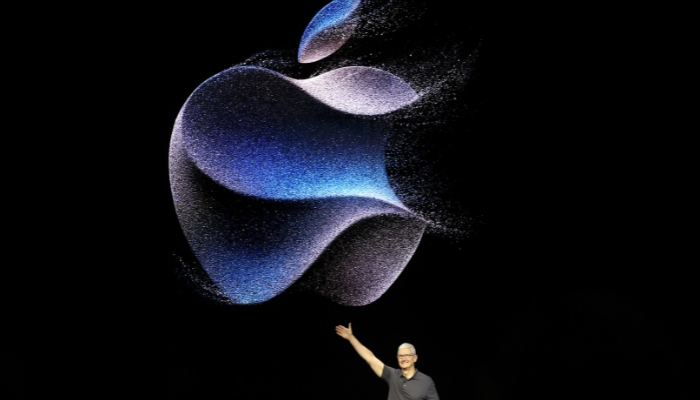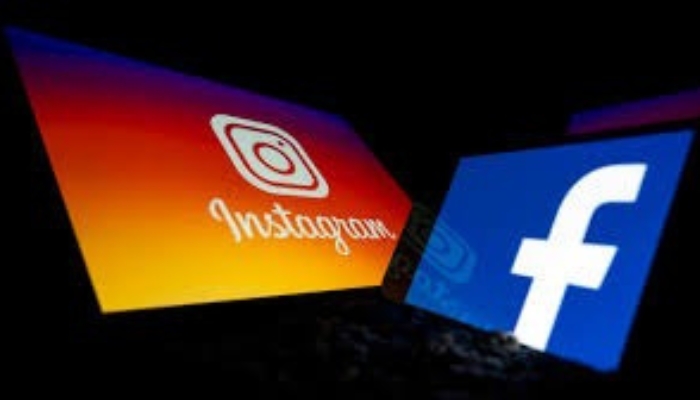
Last updated on April 8th, 2024 at 10:01 am
The Justice Department lawsuit claims the tech giant unlawfully hindered competition by limiting access to its software and hardware
On Thursday, the US government filed a broad antitrust case against Apple, alleging that the tech giant has unlawfully hindered competition by limiting access to its software and hardware. The case directly challenges the company’s fundamental products and practices, including its iMessage service and the connectivity of devices like the iPhone and Apple Watch.
The lawsuit, filed in federal court in New Jersey, claims that Apple holds a monopoly in the smartphone market and uses its control over the iPhone to carry out a “broad, sustained, and illegal” course of action. The complaint aims to “liberate smartphone markets” from Apple’s anticompetitive practices, arguing that the company has stifled innovation to maintain its market dominance.
During a press conference on Thursday, US Attorney General Merrick Garland stated, “Apple has maintained its power not due to its excellence, but because of its illegal exclusionary conduct.” He added, “Monopolies like Apple’s threaten the free and fair markets upon which our economy is based.”
The US Department of Justice’s lawsuit against Apple is a significant case that targets the world’s most valuable publicly traded company. It is part of a series of antitrust lawsuits aimed at major tech firms. Amazon, Apple, Meta (formerly Facebook), and Google have all been under investigation by regulators in the US and Europe in recent years. These investigations focus on claims that these companies have amassed power and stifled competition illegally. All four companies have market capitalizations exceeding a trillion dollars.
Apple has refuted the claims made in the lawsuit, stating that they pose a threat to the company’s fundamental operations.
In a statement, an Apple spokesperson said, “This lawsuit jeopardizes our identity and the values that distinguish Apple products in fiercely competitive markets. If successful, it would impede our ability to develop the kind of technology people anticipate from Apple—where hardware, software, and services converge. It would also establish a risky precedent by allowing the government to play a significant role in shaping people’s technology. We believe this lawsuit is incorrect based on the facts and the law, and we will vigorously defend ourselves against it.”
At the heart of the case is whether Apple’s practice of preventing rival companies from accessing various proprietary features, such as its iMessage instant messaging service and Siri virtual assistant, constitutes anticompetitive behavior. The case will also explore whether Apple’s strategy of ensuring its devices easily integrate with each other, while making it challenging for non-Apple products to do so, creates unfair hardware restrictions that impede competitors’ access to the market.
The Department of Justice’s complaint claims that Apple has engaged in various anticompetitive practices, such as blocking innovative apps, reducing the capabilities of non-Apple smartwatches, restricting third-party digital wallets, and stifling cross-platform messaging. The complaint argues that these actions have led to higher prices for consumers by stifling significant competition.
Garland stated that Apple erects barriers, making it exceedingly challenging and costly for both users and developers to explore options outside the Apple ecosystem. The complaint alleges that these practices have been ongoing for more than a decade, forming part of a longstanding strategy by the company to target other technologies that challenge its dominance in the market.
The lawsuit seeks several changes to Apple’s business practices and requests an unspecified monetary penalty for its actions. It calls on the court to prohibit Apple from using its contract terms and conditions to solidify its monopoly position and to prevent the company from using its app store and private APIs to impede the distribution of cross-platform technologies.
Apple dominates a significant portion of the smartphone market, surpassing Samsung last year to become the industry’s leading phone manufacturer. The company often highlights the seamless compatibility among its products. However, rival tech firms, particularly Google, have criticized Apple’s features, describing them as creating a closed ecosystem that harms consumers. They have urged regulators to investigate these practices. In November, Apple agreed to enhance text messaging between iPhones and Android devices.
A recent incident that caught the regulators’ attention was Apple’s interactions with the messaging startup Beeper. Last year, Beeper launched a product designed to allow non-iPhone users to send and receive iMessages. Beeper introduced its “Beeper Mini” app in December, but Apple seemed to find ways to disable the app’s functions less than a week later, citing privacy and security concerns in a vague statement. Beeper attempted to restore its services, leading to a series of exchanges between the two companies. Ultimately, Apple blocked external access to its iMessage capabilities.
“Afterward, Beeper’s CEO, Eric Migicovsky, stated on the company’s blog that as much as they wanted to advocate for what they believed was a fantastic product that should exist, they couldn’t win a cat-and-mouse game with the world’s largest company.”
In recent months, executives from Beeper, as well as executives from the tracking service Tile, have reportedly spoken with investigators. Tile has raised concerns about potential antitrust violations related to Apple’s AirTags product, which offers a similar function to Tile.
Speculation and anticipation in the media about the antitrust lawsuit have been mounting since the beginning of the year. There have been numerous reports suggesting that the government was nearing the final stages of filing. In a last-ditch effort to dissuade the Justice Department from pursuing the case, Apple’s lawyers reportedly met with Assistant Attorney General Jonathan Kanter in February, as Bloomberg reported.
The Justice Department has been investigating whether Apple violated antitrust laws since at least 2019, as part of a broader effort to probe big tech’s anticompetitive practices. This initiative has led to several high-profile antitrust cases, such as the trial in 2023 focused on Google’s search engine and another upcoming case related to Google’s advertising business. Separately, the Federal Trade Commission has filed antitrust lawsuits against Meta (Facebook’s parent company) and Amazon, although these cases have yet to go to trial.
In Europe, regulators are also increasing pressure on Apple. The European Commission fined Apple €1.8 billion ($1.95 billion) for breaching antitrust laws. This investigation stemmed from a complaint by Spotify, which alleged that Apple was imposing restrictions on its app store to the detriment of other music streaming providers in favor of Apple Music.





